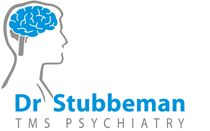
Tag Archives: TMS


Targeting depression: Treatment uses magnetic pulses to reduce, eliminate symptoms
A recently opened clinic in Durango is now offering a new, drug-free treatment for patients suffering from depression that has just about the same success rate as prescribed medication. “This is really becoming a popular form of treatment that, unlike medication, has no side effects,” said Daniel Caplin, a doctor of osteopathic medicine and owner/medical director of Suttle Street Clinic. “And people want holistic cures rather than depending on medication.
Psychiatrist offers new technology to battle depression
“This technology can be used instead of medication,” said Ablow, who is also a well-known author. “It can be appropriate for those who are profoundly depressed or for whom other solutions have not been successful. This is a well-tolerated solution that the data shows is very effective.” His mini-practice is known as New England TMS, and his office is one of the few in northern New England to be employing the technology, known as dTMS, or deep Transcranial Magnetic Simulation.
Local Clinic Offers Drug Free Depression Treatment
ALBUQUERQUE, N.M. (KRQE) – A local clinic is now offering depression patients a new drug-free treatment to help battle the disorder. The treatment, Transcranial Magnetic Stimulation (TMS), employs highly focused magnetic pulses to painlessly stimulate key neurons in the brain and clear away the dark clouds of the disorder. Albuquerque Psychiatrist, Dr. Ruben Sutter, joined KRQE’s This Morning team to discuss the procedure.
Transcranial Magnetic Stimulation Modulates Resting EEG Functional Connectivity Between the Left Dorsolateral Prefrontal Cortex and Limbic Regions in Medicated Patients With Treatment-Resistant Depression
High-frequency left prefrontal repetitive transcranial magnetic stimulation (rTMS) has been shown to have efficacy in treatment-resistant depression. However, the effects of rTMS on functional connectivity are still not clear.
Did You Know There Are 4 Different Types of Depression?
Depression therapies range from lifestyle methods such as talk therapy and exercise, medicinal treatments such as prescription antidepressants, medical treatments such as transcranial magnetic stimulation or, in particularly tough cases, electroshock therapy. Up until now, deciding which therapies would work best for which patient has been a matter of trial and error, but this new Cornell research will help doctors match the type of depression someone has to the best treatment for that version specifically.
Stimulating the brain can bring back forgotten short-term memories
Some hopeful news for those who can’t remember new people’s names: stimulating the brain with a magnetic pulse can bring back forgotten short-term memories, as long as we know that we’ll need that information later.
Brain stimulation guides people through an invisible maze
You’re stuck in a maze. You can’t see the walls, or the floor. All you have to navigate is a device on your head stimulating your brain to tell you which way to go. In an experiment at the University of Washington in Seattle, participants solved a maze puzzle guided only by transcranial magnetic stimulation (TMS). The findings suggest that this type of brain prompt could be used to augment virtual reality experiences or help give people who are blind “visual” information about their surroundings.
Tinitus: Are concerts and headphones taking their toll
You know that ringing in your ear you get after a particularly loud rock concert? All those screaming guitar solos, high-pitched synths and amp feedback buzzing around in your head hours after the concert is over. And that’s just for the band. It’s even louder for the audience, who get the full brunt of the PA system (well, they’d better get the full brunt or you’re not doing your rock star job).
